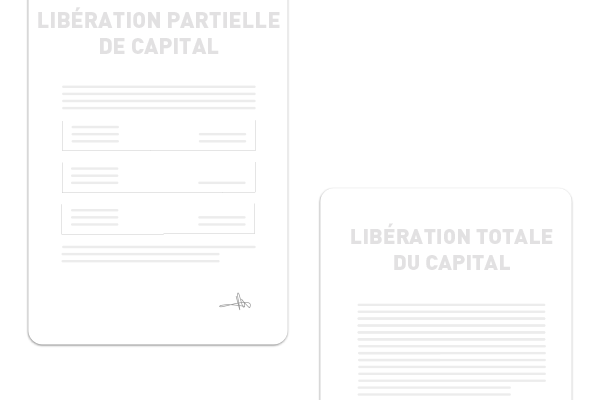
En fonction de son statut juridique, chaque entreprise a des obligations comptables. Faisons le tour d'horizon des différentes obligations comptables selon votre statut🕵️
SARL, EURL, SAS et SASU 📃
Ces entreprises doivent obligatoirement :
-
Enregistrer de manière chronologique tous les flux / transactions qui ont un impact sur le patrimoine de l'entreprise (ventes, achats, opérations bancaires, caisse, etc.)
-
Mettre en place une facturation respectant certains critères (mentions obligatoires par exemple)
-
Réaliser un inventaire au moins une fois par an, afin de contrôler physiquement l’existence et la valeur des actifs et des passifs de son patrimoine
-
Conserver les documents comptables et les pièces justificatives pendant 10 ans
À ce titre, Anytime vous propose de numériser toutes vos notes de frais répondant aux exigences de l’administration fiscale. Stocké sur un serveur sécurisé, le document sera conservé pendant 10 ans 🎉 Cliquez ici pour en savoir plus !
Cependant, les SARL et EURL ayant un régime simplifié d'imposition, bénéficient d'allègements comptables. Elles doivent seulement :
-
Mettre en place une comptabilité de trésorerie durant leur exercice comptable
-
Ne comptabiliser les créances et les dettes qu’à la clôture de leur exercice comptable.
Entreprise individuelle 🧑💻
Les obligations comptables d'une entreprise individuelle vont dépendre de la nature de son activité et de son régime fiscal.
Les entreprises individuelles avec un régime réel normal (BIC) doivent tenir une comptabilité complète :
-
Enregistrer de manière chronologique tous les flux/transactions qui ont un impact sur le patrimoine de l'entreprise (ventes, achats, opérations bancaires, caisse etc.)
-
Mettre en place une facturation respectant certains critères (mentions obligatoires par exemple)
-
Réaliser un inventaire au moins une fois par an, afin de contrôler physiquement l’existence et la valeur des actifs et des passifs de son patrimoine
Les entreprise individuelles avec un régime simplifié d'imposition (RSI) bénéficient d'allègements comptables. Elles doivent :
-
Mettre en place une comptabilité de trésorerie durant leur exercice comptable
-
Ne comptabiliser les créances et les dettes qu’à la clôture de leur exercice comptable
-
Faire une évaluation simplifiée des stocks et des en-cours de production
-
Centraliser les écritures comptables trimestriellement
-
Déduire les frais de carburant de manière forfaitaire
Les entreprises individuelles avec un régime micro-BIC ou micro-BNC doivent simplement suivre leurs recettes et dépenses dans des registres différents.

Entreprise individuelle à responsabilité limitée 👤
Les micro-EIRL ont des obligations comptables très allégées : elles doivent seulement établir un livre des recettes et un registre des achats.
Les EIRL ayant un régime réel simplifié doivent :
-
Mettre en place une comptabilité de trésorerie durant leur exercice comptable
-
Établir une évaluation simplifiée des stocks
-
Centraliser les écritures comptables trimestriellement
-
Déduire les frais de carburant de manière forfaitaire
Les EIRL ayant un régime réel normal sont soumis à une comptabilité régulière et sincère. Elles doivent :
-
Enregistrer de manière chronologique tous les flux/transactions qui ont un impact sur le patrimoine de l'entreprise (ventes, achats, opérations bancaires, caisse, etc.)
-
Mettre en place une facturation respectant certains critères (mentions obligatoires par exemple)
-
Réaliser un inventaire au moins une fois par an, afin de contrôler physiquement l’existence et la valeur des actifs et des passifs de son patrimoine
-
Conserver les documents comptable et les pièces justificatives pendant 10 ans.

Associations 👫
Les obligations comptables d'une association dépendent de sa taille, de son activité, de son financement et de sa fonction lucrative ou non.
Ainsi, un plan comptable associatif (qui est une adaptation du plan comptable général) est exigé pour :
-
les associations percevant une aide publique supérieure à 23 000 € ;
-
les associations financées par des collectivités territoriales sur plus de 50 % de leur budget ou pour plus de 75 000 € ;
-
les associations percevant des subventions publiques de l'État ou des collectivités locales pour un montant annuel dépassant 153 000 € ;
-
les associations ayant une activité économique et remplissant au moins deux des trois critères suivants : bilan supérieur à 3,1 millions d'euros, bilan de plus de 1,55 millions d'euros, effectifs dépassant 50 salariés ;
-
les associations exerçant une activité commerciale et fiscalisée ;
-
les associations reconnues d'utilité publique ;
-
les associations qui sollicitent l'agrément d'une autorité publique et qui, de ce fait, font l'objet d'une convention fixant les conditions de l'agrément (sauf si une loi précise ces conditions) ;
-
les associations ayant pour but exclusif l'assistance, la bienfaisance, la recherche scientifique ou médicale et reconnues comme telles par arrêté ;
-
les associations gérant des établissements du secteur sanitaire et social ;
-
les associations d'intérêt général recevant des versements par l'intermédiaire d'associations relais ;
-
les associations faisant appel à la générosité publique ;
-
les associations émettant des valeurs mobilières ;
-
certaines associations et groupements sportifs ;
-
les groupements politiques et les associations de financement électoral ;
-
les associations en redressement ou en liquidation judiciaire.
Cela concerne moins de 5 % des associations, mais pour autant, il est fortement recommandé à toutes les associations de tenir un plan comptable pour le bon fonctionnement de l'organisme. 💯
Synthèse
Les entreprises ayant un régime réel normal
| Obligations | SARL, EURL, SAS et SASU | EI (BIC) | EIRL |
|---|---|---|---|
| Enregistrer de manière chronologique tous les flux ayant un impact sur le patrimoine de l'entreprise | ✅ | ✅ | ✅ |
| Mettre en place une facturation respectant certains critères | ✅ | ✅ | ✅ |
| Réaliser un inventaire une fois par an/minimum | ✅ | ✅ | ✅ |
| Conserver les documents comptable et les pièces justificatives pendant 10 ans | ✅ | ❌ | ✅ |
Les entreprises ayant un régime simplifié d'imposition
| obligations | SARL, EURL, SAS et SASU | EI (BIC) | EIRL |
|---|---|---|---|
| Mettre en place une comptabilité de trésorerie durant leur exercice comptable | ✅ | ✅ | ✅ |
| Ne comptabiliser les créances et les dettes qu’à la clôture de leur exercice comptable | ✅ | ✅ | ❌ |
| Faire une évaluation simplifiée des stocks et des en-cours de production | ❌ | ✅ | ✅ |
| Centraliser les écritures comptables trimestriellement | ❌ | ✅ | ✅ |
| Déduire les frais de carburant de manière forfaitaire | ❌ | ✅ | ✅ |
Respecter les obligations comptables assurera une bonne gestion et organisation de votre entreprise, alors prenez les devants dès le début ! 🚀








